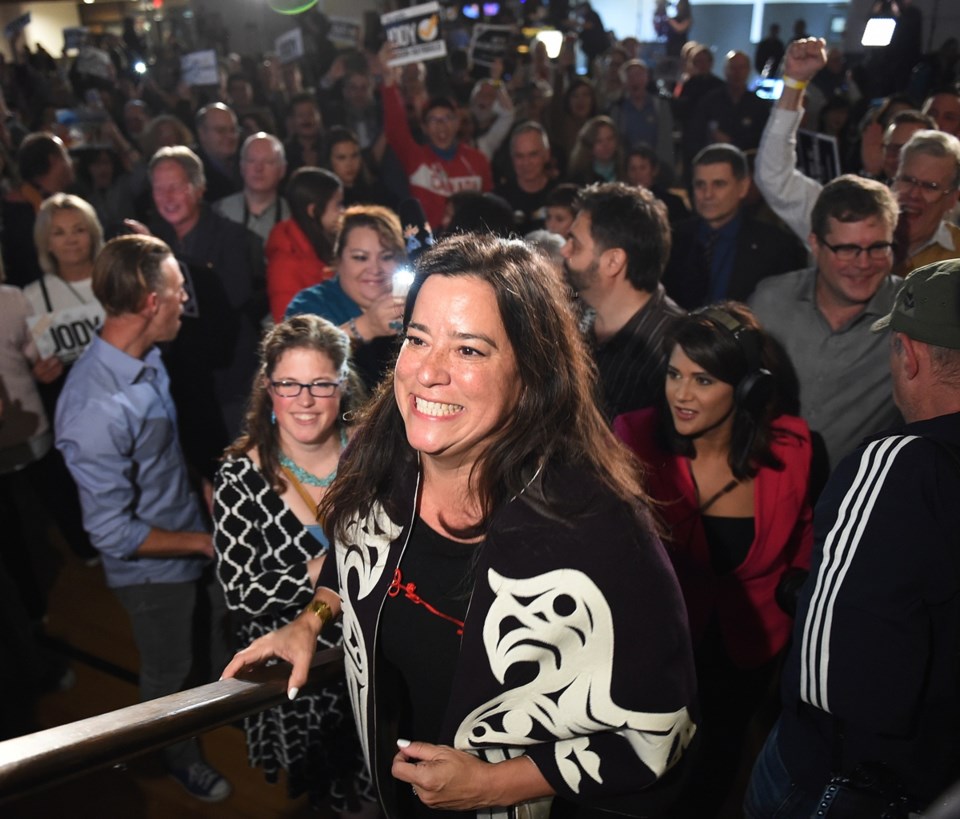Women have come a long way, but recent events show it’s not far enough.
First, there was the federal election, which saw just 98 women elected of 338 Members of Parliament. That’s a record number, but still less than one-third.
After the election, I saw Beverley McLachlin speak at the Â鶹´«Ă˝Ół»Writers’ Fest. She’s written a new memoir, Truth Be Told, about her path to become the first woman named Chief Justice of the Supreme Court of Canada. She said she felt like she was never quite “enough” when she was teaching law. The friend I went with nodded at me, saying, “said no woman ever,” because of course we both know many women who feel this way. McLachlin got past that feeling by deciding to always do her best.
McLachlin reflected on her husband’s death, saying she once sought advice from another judge about whether it was OK that his death might affect her rulings on euthanasia and medical assistance in dying. The other judge told her that human experience would make her decisions stronger. I agree. After decades, McLachlin was key in the court decision legalizing assisted dying. Her influence on our Canadian world is undeniable.
The same week, the tiny, but mighty, Greta Thunberg . Thunberg is the 16-year-old girl from Sweden who started the school strike for climate movement that has grown to become a global protest involving millions. She told thousands of Vancouverites that her group will rise to the challenge, hold those responsible accountable and make world leaders act on climate change.
“We can and we will,” Thunberg said. “If you feel threatened by that, I have some very bad news for you. This is just the beginning, we will continue, because change is coming whether you like it or not.”
She’s fierce and powerful — don’t disregard her.
All of this girl power got me thinking. Why are women reluctant to run for Parliament? What is it about our system that turns them off?
But then I remembered the vandalism of Liberal MP Catherine McKenna’s Ottawa office, which was spray painted with a sexist slur.
I remembered , who has stood up alone against Justin Trudeau, who the country’s ethics watchdog said violated our ethics code by pressuring Wilson-Raybould to intervene to help a corporation avoid criminal prosecution.Ěý
“[A] lack of accommodation for caregiving, a hostile and combative political culture, entrenched sexism and stereotypes, [and] disparaging media coverage” are some of the factors that deter women from running, says Unfinished Business, a report released in late October by the Canadian Centre for Policy Alternatives.
Having fewer women’s voices in Parliament means our government doesn’t accurately reflect our society. It also perpetuates things such as the gender pay gap — Canadian women are paid only 82 cents for every dollar a man makes — because men outnumber women in government and management positions two to one, says the report, prepared by a network of more than 50 women’s rights organizations, trade unions and independent experts. Ěý
The pay gap is not for lack of education. Nearly two-thirds of women aged 25 and older now have some sort of post-secondary education, compared to just less than half of men.
Speaking of education, it would be pertinent to point out that the Â鶹´«Ă˝Ół»School Board has both a female superintendent and a female board chair. Five of the eight trustees are women. On Â鶹´«Ă˝Ół»city council, eight of 10 councillors are women, led by a male mayor. But that’s not the norm. Just 18 per cent of Canada’s mayors and 28 per cent of our city councillors are women, the report says. Just six years ago, Canada had six female premiers, but that number is now zero.
What can be done? Unfinished Business calls for a national action plan with strategies to reduce harassment and make politics less dirty, to create family-friendly workplaces, including childcare, and to implement measures like proxy voting to make remote participation in politics possible.
I’m hoping against hope that our new minority federal government might encourage cooperation and collaboration rather than a zero-sum game of us versus them. If that’s the case, perhaps more women might run for office.
As a woman myself, I know I intend to promote and encourage other women in their roles, rather than competing with them. And when it comes to women like Beverley McLachlin or Greta Thunberg, very real people, ready to take on the world, I will share their stories and sing their praises.
Ěý



